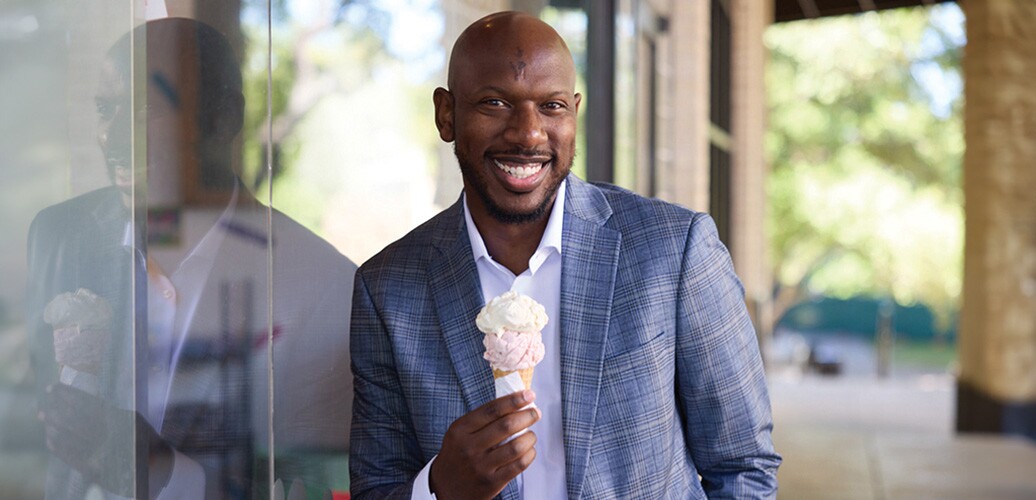Justin Wynter knows he’s made
“There have been times in my life that if I had known about this investment tool or that strategy, maybe the results would have been different or I’d have had a better outcome,” says Justin, a Thrivent client in Austin, Texas. “If I can help equip people with some of those tools, it’s important.”
His parents were his first financial teachers, instilling faith and values into him and his three siblings as they grew up in Connecticut. After graduating from the University of Pennsylvania, he spent a few years in Chicago before moving to Austin, where he married his wife, Andrea. They have two sons, 9 and 7.
Justin has served on the board of the
Justin especially enjoys volunteering with high school and college-age students. “They’re starting to make big decisions that can have a large impact on their lifestyle for the next 20 years,” he says. “If we can get the right information, the right tools in their hands, it can make a big difference.”
Read on for a Q&A with Justin.
What is your first memory of money?
We went to an ice cream store and my mom told me we had $5 for ice cream. If I dropped my cone, there wouldn’t be any more. Of course, I took one lick and it dropped to the floor. I was about 4 years old, and this was my first recognition that there is a finite amount of money. After you spend it, it’s gone. That was very real to me. Now, I do something similar with my own kids. We may go to an arcade; they can each bring $10 from their piggy banks. But once it’s gone, Mom and Dad aren’t pitching in. They look around the room carefully and decide how they really want to spend their limited money.
What are your guiding principles around money decisions?
Security is important to us. My wife and I always want to be prepared for worst-case scenarios, especially with the kids. We want them to feel safe. So, we live with financial discipline, being that example to our children. We want them to see us treating money with respect and being good stewards of what we’ve been given.
What’s the best piece of financial advice you’ve ever received?
Don’t spend more than you make. Have a game plan for your money instead of letting life happen to you. This was instilled in me by my parents, who were really big on being careful with
What’s your favorite volunteer activity?
I love when I get to be a volunteer coach or volunteer judge for an activity. On several occasions I’ve been a volunteer judge for activities at Huston–Tillotson University in Austin. And I was a volunteer coach for a case study team. I love the ideas college students come up with in their innovative environment. They’re constantly coming from a fresh perspective, and I can explore with them what they mean.
How do you demonstrate gratitude?
Particularly at the end of the year, my wife and I set aside time to review the nonprofits we love to give to. That’s showing our gratitude for the work they are doing. This is a newer one for us, but we’re trying to lean more into service to others and involve our children. For example, we have a large population experiencing homelessness in Austin. My kids asked if we could have something in the car to give to them. We are starting to think through these things and involving them as we strive to instill service into their lives.
What does it mean to you to thrive with purpose?
That goes back to having a game plan for your money and your life. It means to live life with purpose but also on purpose. My parents were big on encouraging us to not let life simply happen to us. My dad would say you can put yourself into situations where opportunities come your way. It’s your work and preparation that gets you ready for those opportunities.




